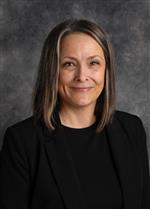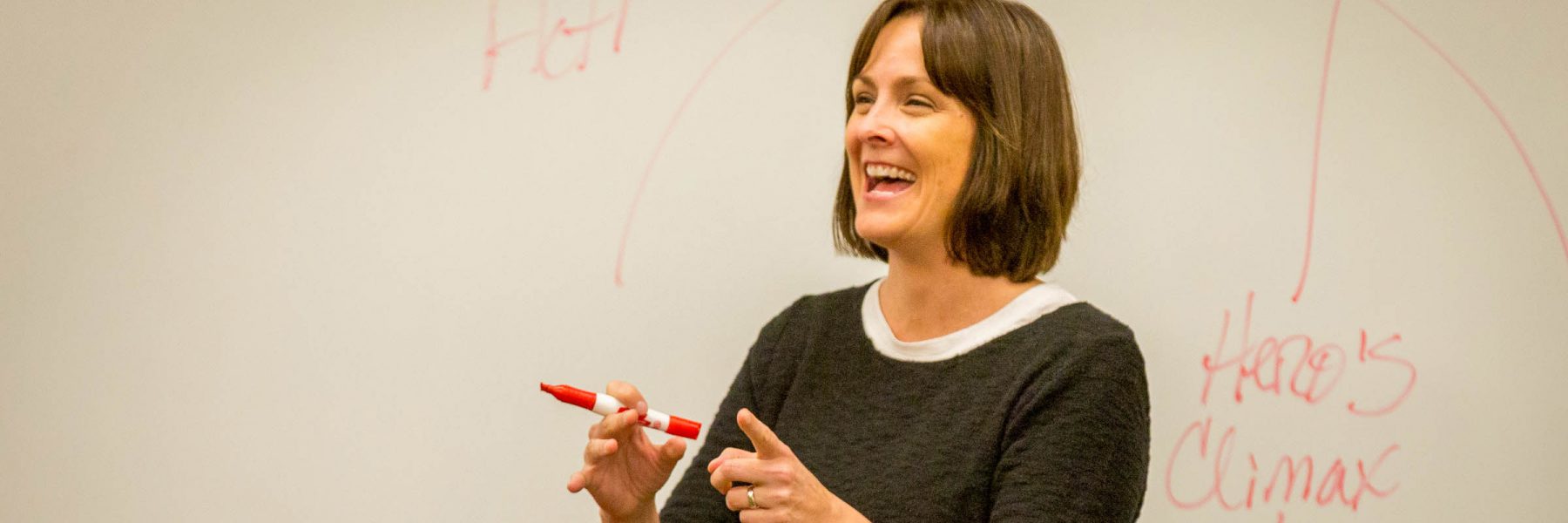
Angie A. Johnson is an Associate Professor in the English department and a Writing Center Coordinator in the Academic Affairs department.
Teaching Philosophy
To write well, students must abandon the idea that experienced writers compose fully-developed texts in one sitting, either academic or creative. This idea is false. For most individuals, effective writing is the result of intentional research and meticulous efforts that engage them in brainstorming activities, drafting, revising, and editing... and not necessarily in that order. The writing process is messy. In order to become successful thinkers and communicators, students must identify and develop a process suited to their unique learning styles. This is something that I like to impress upon students.
I also like to impress upon students that writing can be learned. One important skill that can be learned is how to research and critically read complex texts, whether traditional or multimodal. Intentionally, critical reading slows the reader, who can then engage with the author’s ideas through an analysis of rhetorical strategies, such as the text’s purpose, audience, and context. By developing an awareness of a variety of rhetorical techniques, students are empowered to think critically about the choices they make in their own writing.
Another important skill that can be learned is the use of basic structural forms. Just as musicians study scales and athletes run line drills, my students practice developing academic paragraphs (topic sentence, supporting points, detailed evidence, concluding sentence) and writing five-part paragraph essays (thesis, body, conclusion). These writing models help students learn how to articulate claims and develop, recognize, and organize their thoughts. Which is the main idea? What are the supporting ideas? Where should these ideas go? Are any of the ideas misplaced or irrelevant? Students who become adept with such models are encouraged then to design their own structural forms and use their own writing processes while retaining organization and clarity.
Finally, effective writing can be learned through regimented (and fun!) practice exercises. In my classroom, students engage in research exercises, freewriting exercises, imitation exercises, grammar exercises, creative writing exercises, reflection exercises, and brainstorming-drafting-revision-and-editing exercises. A student’s final draft of an academic or creative composition is not the only important consideration in the classroom; the process of achieving any final draft through practice is equally important.
As such, I view myself as a facilitator, coach, and mentor. I keep lectures to a minimum. In the traditional classroom and online, I welcome mistakes made by students during the writing process in order to encourage the development of better and better ideas. Through this philosophy and along with guided practice — the musical scales and line drills — students are empowered to discover their own voices and encouraged to abandon the idea that experienced writers compose fully-developed texts in one sitting because, as demonstrated in class, they do not. Everyone can learn to write.
Publications & Awards
Before teaching, Professor Johnson served as a freelance writer for over ten years. During that time, she wrote journal articles, dabbled in legal writing, composed grant applications for a variety of organizations, and provided editorial services for professional and creative writers. Johnson’s works have appeared in Mason’s Road, affiliated with Fairfield University Online Literary Journal; Soviet Peaches: A Literary Magazine; and Capstone Press, where she has published over a dozen children’s books. Johnson’s poetry won an Honorable Mention for CALYX Journal’s Tenth Annual Lois Cranston Memorial Poetry Prize, and she has been the recipient of the PLRAC/McKnight Emerging Artist Grant and the Minnesota State Arts Board/Artist Initiative Grant.
Degrees & Professional Memberships
- B.S. in English, Minnesota State University
- M.F.A. in Creative Writing, Minnesota State University
- Association of Writers & Writing Programs (AWP)
- International Writing Centers Association (IWCA)
Angie Johnson has recently taught the following courses:


